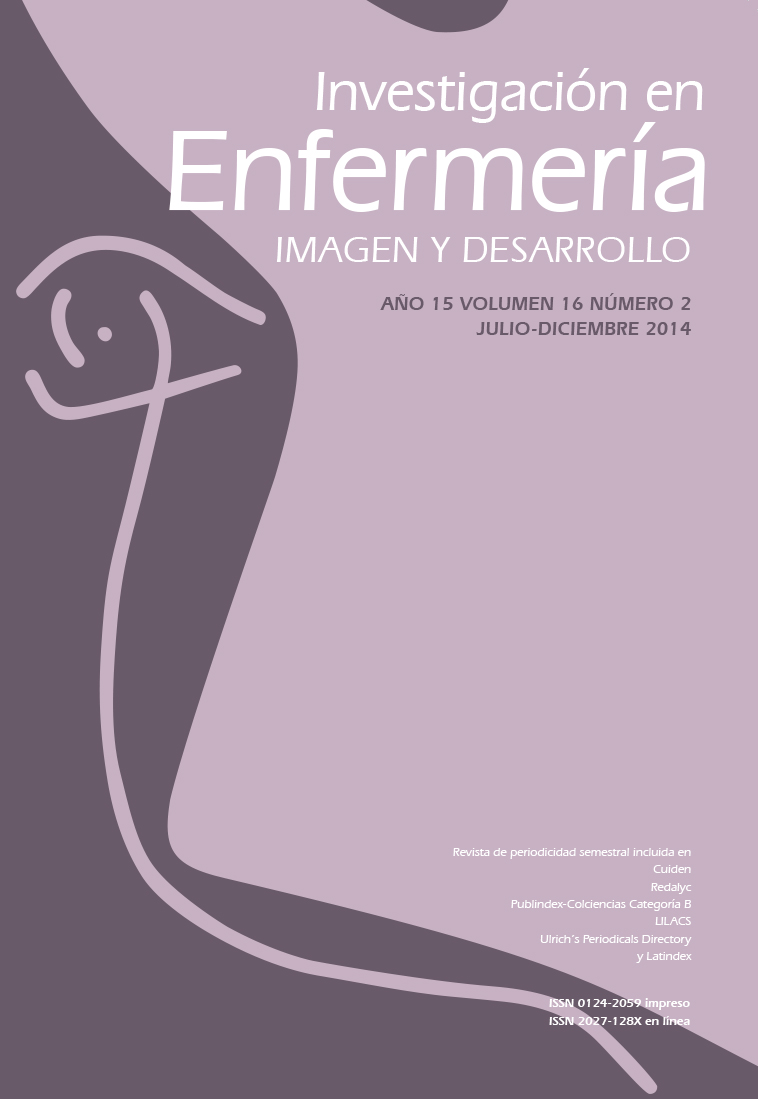Abstract
Objective: To describe the difficulties encountered in the telephone follow-up for the practice of self-care behaviors related to adherence to non-pharmacological treatment in patients with heart failure (HF). Methodology: Descriptive study i n which 31 patients with HF of a hospital in Medellin, Colombia, in 2011 participated.7 per month telephone follow-up sessions for patients were conducted. Each session (30-45 minutes) difficulties with adherence to 9 self-care behaviors were assessed. All participants received nursing education according to their individual needs. Results: All patients had difficulties in practicing some self-care activities related to non-adherence to drug therapy, 83.9% of them for 5 or more activities. The behaviors that were more difficult were: measuring urine and weight control (100% each), control of salt intake (96.7%) and fluid restriction (93.5%). Conclusion: With the help of telephone follow-upeducation given by health personnel was identified as the main difficulty in regards to the adherence to non-pharmacological treatment in patients with HF. Individual issues were important in the control of salt intake, decreased daily activities and the reduction of alcohol consumption and cigarette. For weight control the most reported aspect was of social nature.
The journal Investigación en Enfermería: Imagen y Desarrollo is registered under a Creative Commons Attribution 4.0 International Public License. Thus, this work may be reproduced, distributed, and publicly shared in digital format, as long as the names of the authors and Pontificia Universidad Javeriana are acknowledged. Others are allowed to quote, adapt, transform, auto-archive, republish, and create based on this material, for any purpose (even commercial ones), provided the authorship is duly acknowledged, a link to the original work is provided, and it is specified if changes have been made. Pontificia Universidad Javeriana does not hold the rights of published works and the authors are solely responsible for the contents of their works; they keep the moral, intellectual, privacy, and publicity rights.
Approving the intervention of the work (review, copy-editing, translation, layout) and the following outreach, are granted through an use license and not through an assignment of rights. This means the journal and Pontificia Universidad Javeriana cannot be held responsible for any ethical malpractice by the authors. As a consequence of the protection granted by the use license, the journal is not required to publish recantations or modify information already published, unless the errata stems from the editorial management process. Publishing contents in this journal does not generate royalties for contributors.


